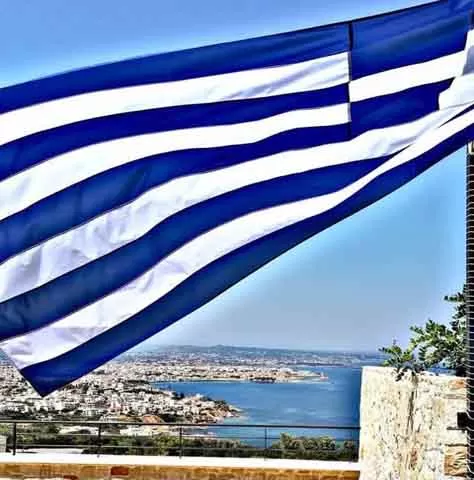Although Greek is the official language, yet another safe country that most tourist and travelers both English and non-English speakers love to explore is Greece.
With a population of about 10 million, Greece is a country located in southern Europe. Greece forms an irregular-shaped peninsula in the Mediterranean with two additional large peninsulas projecting from it: the Chalcidice and the Peloponnese. The near countries to Greece are Albania, Bulgaria, Turkey, Republic of Macedonia and it shares maritime borders with Cyprus, Egypt, Italy, and Libya.
The Greek islands are generally subdivided into two groups, according to location which comprises of the Ionian islands (including Corfu, Cephalonia, and Leucas) west of the mainland and the Aegean islands (also including Euboea, Samos, Chios, Lesbos, and Crete) to the east and south. North-central Greece, Epirus, and western Macedonia are all mountainous.
The main chain of the Pindus Mountains extends from northwest Greece to the Peloponnese. Mount Olympus, rising to 9,570 ft (2,909 m), is the highest point in the country.
History of Greece
Indo-European peoples, including the Mycenaeans, began entering Greece about 2000 B.C. and set up sophisticated civilizations. About 1200 B.C., the Dorians, another Indo-European people, invaded Greece, and a dark age followed, known mostly through the Homeric epics.
At the end of this time, classical Greece was founded or began to emerge as a loose composite of city-states with a heavy involvement in maritime trade and a devotion to art, literature, politics, and philosophy. Greece reached the peak of its glory in the 5th century B.C., but the Peloponnesian War (431?404 B.C.) weakened the nation, and it was conquered by Philip II and his son Alexander the Great of Macedonia, who considered themselves Greek.
By the middle of the 2nd century B.C., Greece had declined to the status of a Roman province. It remained within the eastern Roman Empire until Constantinople fell to the Crusaders in 1204. In 1453, the Turks took Constantinople and by 1460, Greece was a province in the Ottoman Empire. The Greek war of independence began in 1821, and by 1827 Greece won independence with sovereignty guaranteed by Britain, France, and Russia.
Prince Otto of Bavaria was chosen as the first king of modern Greece in 1832 to reign over an area only slightly larger than the Peloponnese peninsula by the protecting authorities. Chiefly under the next king, George I, chosen by the protecting powers in 1863, Greece acquired much of its present territory. During his 57-year reign, a period in which he encouraged parliamentary democracy, Thessaly, Epirus, Macedonia, Crete, and most of the Aegean islands were added from the disintegrating Turkish Empire.
Due to the unfavorable economic conditions, lots of the people were forced about one-sixth of the entire Greek population to emigrate (mostly to the U.S.) in the late 19th and early 20th centuries. An unsuccessful war against Turkey after World War I brought down the monarchy, which was replaced by a republic in 1923.
What Greece is known for?

Home to a portion of the world’s most significant and historical destinations, beautiful islands, Greece is known for its natural beauty and fascinating culture.
Ancient archaeological sites, cliffs tumbling into sparkling blue water, sand and pebble beaches, and a balmy Mediterranean climate make Greece a superb spot for vacationers.
Recommended reading.. Greece Travel Restrictions
With Athens being the capital city of Greece, there are lots of attractions to see in the entire country for instance, Ancient Delphi and the monasteries of Meteora. In any case, the vast majority come here to get a ship to the islands of Santorini, Mykonos, Zakynthos, Corfu, and Crete which are the most famous.
Book your accommodations in Greece
Thank you for reading this article about

